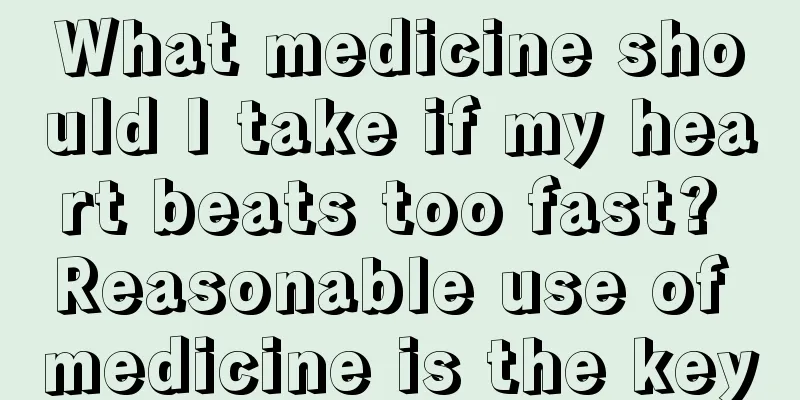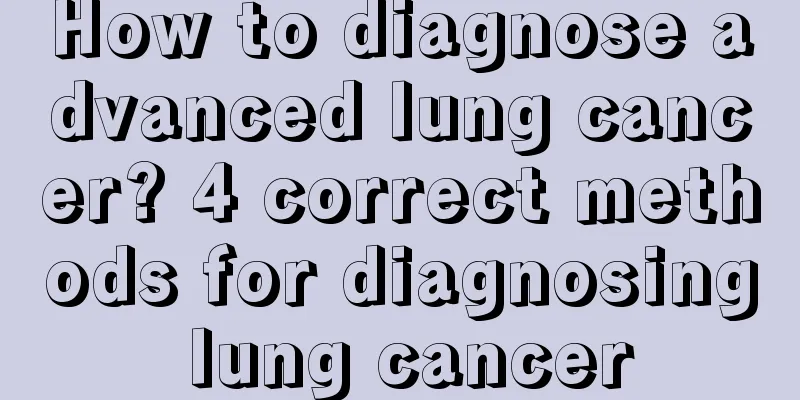What medicine should I take if my heart beats too fast? Reasonable use of medicine is the key

|
There are pathological and physiological causes of tachycardia. It can occur after strenuous exercise, excessive emotions, drinking large amounts of alcohol, coffee, or strong tea. If it occurs frequently, you should take medication under the guidance of a doctor in a timely manner and do not use medication indiscriminately. 1. Beta-blockers By blocking beta-receptors, it slows the heart rate. It is a commonly used drug to slow down the heart rate. For patients with good heart function, prone to tension, and high blood pressure, short-acting propranolol (Inderal) can be used, 5 to 10 mg each time (10 mg per tablet) orally, 2 to 3 times a day. Medium-acting metoprolol (Betaloc) is taken orally at 12.5 to 25 mg each time (50 mg per tablet), twice a day; or atenolol (Atenolol) is taken orally at 12.5 to 25 mg each time (50 mg per tablet), twice a day. Or long-acting bisoprolol (Concor, Bossu), 5 mg orally each time (5 mg per tablet), once a day. If the heart rate is slower than 60 beats per minute, discontinue use. 2. Calcium antagonists For example, non-dihydropyridine calcium channel blockers have an inhibitory effect on the sinoatrial node, slowing down the sinus heart rate. Commonly used ones include verapamil (Isapamil), which is suitable for patients with good heart function and high blood pressure. It can be taken orally at a dose of 40 mg each time (40 mg per tablet), 3 times a day, or with sustained-release tablets, half a tablet each time (240 mg per tablet), once a day. It may occasionally cause adverse reactions such as hypotension, lower limb edema, dizziness, and vertigo. If the heart rate is slower than 60 beats per minute, discontinue use. There is also another non-dihydropyridine calcium channel blocker called diltiazem (Tianerxin), which does not slow down the heart rate as well as verapamil, but also has a blood pressure lowering effect and can relieve coronary artery spasm. It is suitable for patients with angina pectoris caused by coronary heart disease accompanied by hypertension and rapid heart rate. Take 1 tablet (30 mg) orally 3 times a day. Or sustained-release capsules, 1 capsule (90 mg) each time, 1 to 2 times a day. Adverse reactions such as dizziness, flushing, headache, constipation, hypotension and bradycardia are occasionally seen. 3. Digoxin It is a cardiotonic drug. By stimulating the vagus nerve, the heart rate is reflexively slowed down. Suitable for patients with tachycardia and poor cardiac function. Take half a tablet to 1 tablet (0.25 mg each tablet) orally, 1 to 2 times a day. Be aware that this may cause gastrointestinal disturbances. 4. Reserpine It is a peripheral adrenergic blocking drug. Suitable for patients with hypertension and rapid heartbeat. Take 1/2 to 1 tablet (0.25 mg per tablet) orally, 2 to 3 times a day. Excessive dosage can cause fatigue, weakness, headache, depression, anxiety, impotence, etc. Vomiting, stomach pain, bradycardia, bronchospasm, etc. are rare. It should be used with caution in patients with a history of depression, peptic ulcer, tremor paralysis, pheochromocytoma, etc. |
<<: What does it mean when big triple positive turns into small triple positive
>>: What is the best way to treat cervical lymphadenopathy?
Recommend
Do you know the correct way to disinfect a thermometer?
Thermometers are a necessity for every family, bu...
Is it okay to dye your hair once every three months?
Different hairstyles can change a person's im...
What does it mean to have chemotherapy first and then surgery for cervical cancer
If cervical cancer is clearly diagnosed, it is re...
How to disinfect a washing machine
The washing machine is a helper to help us wash c...
Will implantation occur on the fourth day after intercourse?
Every time a man has sex, he will release a huge ...
Things to note when undergoing chemotherapy for colon cancer
In recent years, colon cancer has become one of t...
Scientific method of weaning off breast milk
After giving birth, pregnant women need to breast...
What to eat to prevent stomach cancer
What to eat to prevent stomach cancer? In order t...
Is it harmful to remove armpit hair?
Almost everyone has armpit hair in life. Many wom...
What material is good for reading glasses_What material is good for reading glasses
As people age, their eyesight begins to gradually...
How to ease the heartache after a breakup
It's the annual breakup season again. More an...
How to change a diaper
Changing diapers is neither difficult nor easy. W...
How to clean suede shoes
Leather shoes are very common. This type of shoes...
What are the hazards of drugs to the human body
It is normal to get sick occasionally in our dail...
What tests are needed for prostate cancer
Prostate cancer mostly originates from the periph...









